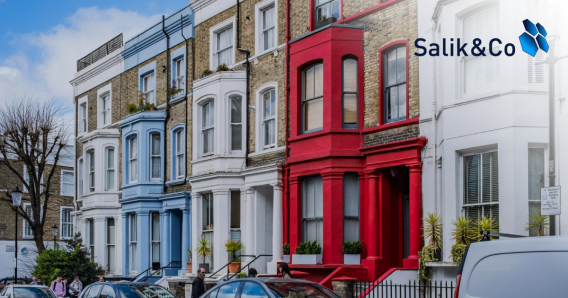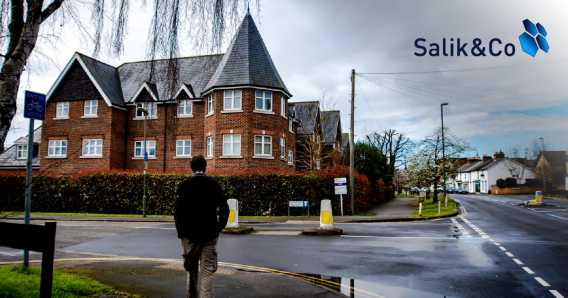Purchasing your very first home is, by far, one of the most remarkable, thrilling and perhaps even puzzling events in one’s life. This may be your first encounter with real estate, like buying a home in East London, and all the procedures that come with it may seem perplexing. Step back, take a deep breath, relax, and read on, as everything will be just fine. The entire process will be broken down into steps, and hopefully, this will offer some guidance on buying property in the UK.
Step 1: Create a budget and assess your finances
As the initial step, start preparing yourself by creating a plan, strategy and goal that suit your financial status. Evaluate your financial position, expenses, and income, all of which will set the groundwork for how you will scout potential properties. Based on the fundamentals, it is advisable to have between 5-10% of the property value saved up to use as a deposit. More money will, naturally, result in a more favourable mortgage deal.
Take note of the following reminders to avoid complications later:
- Look into your credit score and assess if there is any room for improvement.
- Prepare a budget that can cover costs linked to moving, such as stamp costs, legal fees, and much more.
- Make use of mortgage calculators that are available online to help assess what you can spend.
Step 2: Obtain a Mortgage Agreement in Principle (AIP)
A lender’s statement regarding a client's possible balance is termed an Electronically Authorised Payment Mortgage Agreement in Principle (AIP) for a lender. It is an important document which states how much you can possibly borrow from the lending institution. It does not give a loan in principle, but it is one of the many documents that you may need to show during the negotiation stage. In reality, sellers take an AIP seriously. It demonstrates how motivated and financially prepared you are to purchase a house. AIP is indeed beneficial when you plan to make an offer.
Step 3: Commence Your Search For A Home
Now that you have this document, it’s time for the fun part—searching for your ideal home! It doesn’t matter if you want a modern flat in East London, or a quaint house in the suburbs: Remember to think about the following:
- Area: Always look at the available transport infrastructure, schools, and the general environment.
- Type of building: What exactly do you want? A flat? A period home or a new, recently built property?
- Growth prospects: House prices in some geographical locations increase more rapidly than in others.
Explore different websites or real estate services and physically inspect assorted properties to help understand the market. Make sure to take your time because locating a home requires some patience.
Step 4: Present Your Proposal and Obtain Financing
The moment you choose a home, it's time to approach the estate agent. After the seller accepts, you can proceed to complete the requisite mortgage. Accompanying the mortgage, the lender will conduct a valuation survey to assess the worth of the property.
Some real estate advice for newbies:
- Negotiations are encouraged as sellers typically factor in room for negotiations.
- Even if you get rejected for the offer, it is not the end of the world, there are countless alternatives.
- Hire a solicitor or conveyancer to deal with the laws.
Step 5: Conduct Legal Automated Processes and Request a Survey
Before confirming your commitment, consider ordering a home survey. This will assist in revealing possible problems, such as structural problems or dampness, to help you buy the correct house. Your solicitor would also ensure that no planning damages or issues are connected to the property.
Step 6: Contract Exchange
Now things start getting tricky. After contracts are exchanged, you are legally bound to complete the sale. At this stage: You make your deposit payment (commonly 10% of the purchase price). Set a completion date. If you withdraw after this point, you risk losing your deposit.
Step 7: The Completion Day and Moving Day!
On completion day, keys are handed over to your new house while the mortgage funds are moved into the seller's account. You are now officially a homeowner! All that is left is for you to move in, and make the house your home.
FAQ
How long does it take to buy a house in the UK?
On average, the duration is 8-12 weeks from when an offer is made to getting the keys. However, obstructions during the process, such as mortgage approvals, legal work, and property chains, can slow things down.
Should I consult a mortgage broker?
Not using a mortgage broker is possible. However, their expertise may help you get the best deal available, specifically when you do not know where to begin or have a complicated financial situation.
Do first-time buyers pay stamp duty?
First-time buyers won’t pay stamp duty for properties up to £425,000. For properties exceeding this amount, different rates become applicable.
Purchasing your first house should be a pleasant experience, and it does not have to be overwhelming. Be patient, inquire, and seek professional guidance when necessary. It won’t take long for you to have your very own set of keys!






